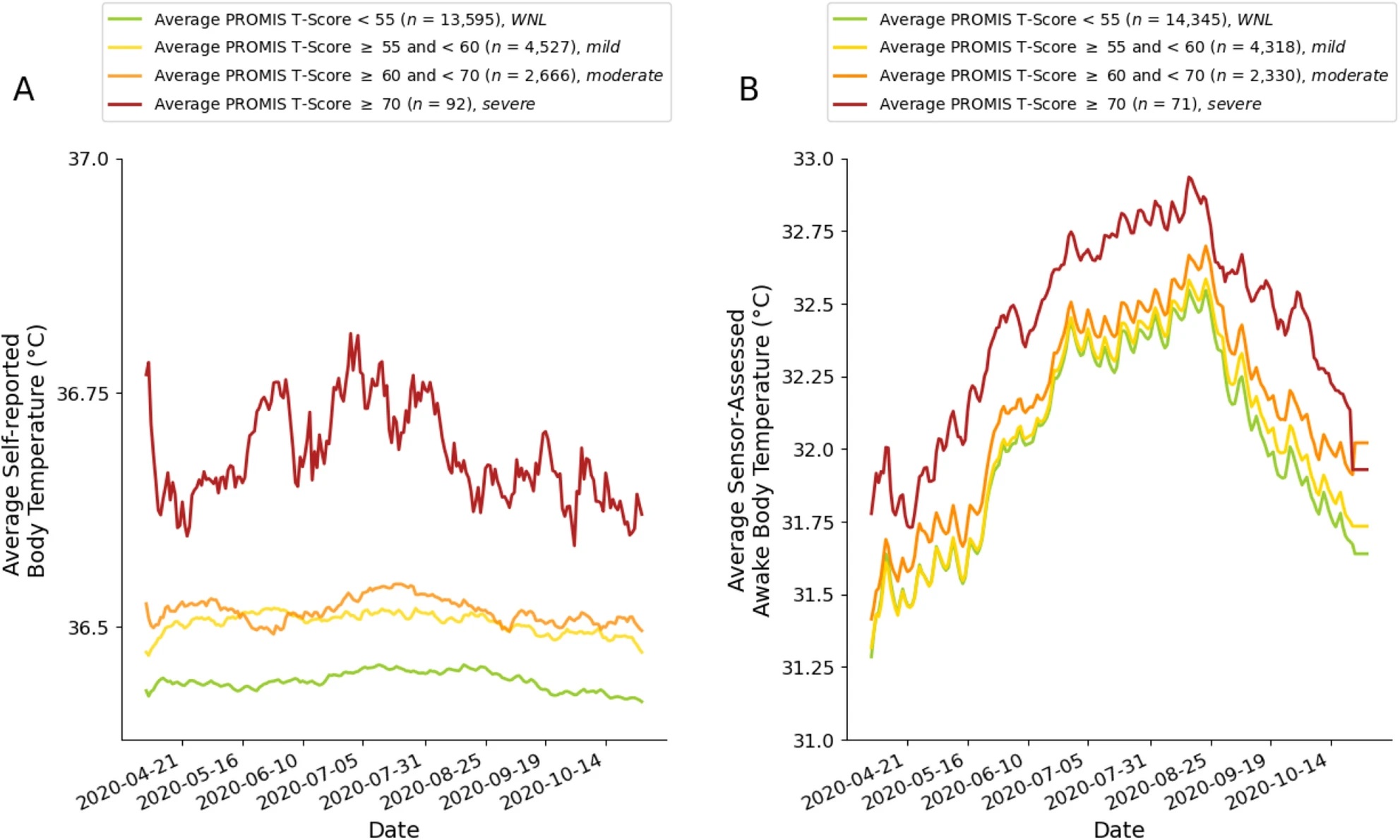Data from more than 20,000 people has revealed an intriguing link between depression and body temperature – specifically, those with depression recorded slightly higher temperatures. Although there are more questions to be answered, the research raises the possibility of introducing heat-based treatments to mental health care in the future.
The study lasted for seven months, beginning in early 2020, and included volunteers from 106 countries. Participants tracked their body temperature data using an Oura wearable smart ring, a commercially available fitness tracker. The main purpose of the study, called TemPredict, was to assess whether temperature tracking could be a useful means of early detection of COVID-19, results that were reported back in 2022.
As well as logging their body temperature once a day, the participants completed a monthly survey that included a diagnostic questionnaire about depression symptoms.
Exploration of the data has now revealed that those with higher levels of depression symptom severity tended to have higher body temperature readings. There was also a trend towards more severe depression in people whose body temperature stayed more stable over a 24-hour period, but this finding was not statistically significant.

Average self-reported (A) and wearable-assessed (B) body temperatures by depression symptom scores (red indicates the most severe depression symptoms).
It’s not the first time that depression and body temperature have been linked, albeit tentatively, but figuring out the cause of some of the observed differences has proved more challenging. While this large study undoubtedly helps add more pieces to the puzzle, it’s still not possible to say for sure whether depression raises body temperature, or whether a higher-than-average body temperature is a risk factor for depression.
We also don’t know whether the higher temperatures recorded in depressed people are down to their bodies generating more heat than usual, or because their ability to regulate their temperature is impaired.
It’s this that the study’s lead author Ashley Mason, an associate professor of psychiatry at the University of California San Francisco Weill Institute for Neurosciences, is interested in exploring further. A small body of evidence suggests a potential benefit for heat-based treatment for depression, such as saunas or hot yoga. It could be that artificially raising someone’s temperature kick-starts the body into triggering self-cooling mechanisms, like sweating.
“Ironically, heating people up actually can lead to rebound body temperature lowering that lasts longer than simply cooling people down directly, as through an ice bath,” Mason explained in a statement. “What if we can track the body temperature of people with depression to time heat-based treatments well?”
Depression is a common problem, with an estimated one in five US adults having been diagnosed with the condition. Consequently, the use of antidepressant drugs has reached all-time highs in some regions, but these are not effective for everyone and can come with troubling side-effects.
The scientific quest to develop new and better treatments for depression is ongoing, encompassing research into psychedelics, drugs like ketamine, and alternative therapies like sensory deprivation. Perhaps, the authors suggest, heat treatments could one day form part of that package.
“To our knowledge, this is the largest study to date to examine the association between body temperature – assessed using both self-report methods and wearable sensors – and depressive symptoms in a geographically broad sample,” said Mason.
“Given the climbing rates of depression in the United States, we’re excited by the possibilities of a new avenue for treatment.”
The study is published in Scientific Reports.
Source Link: Depression And Body Temperature Are Linked, Reveals Fitness Tracker Data